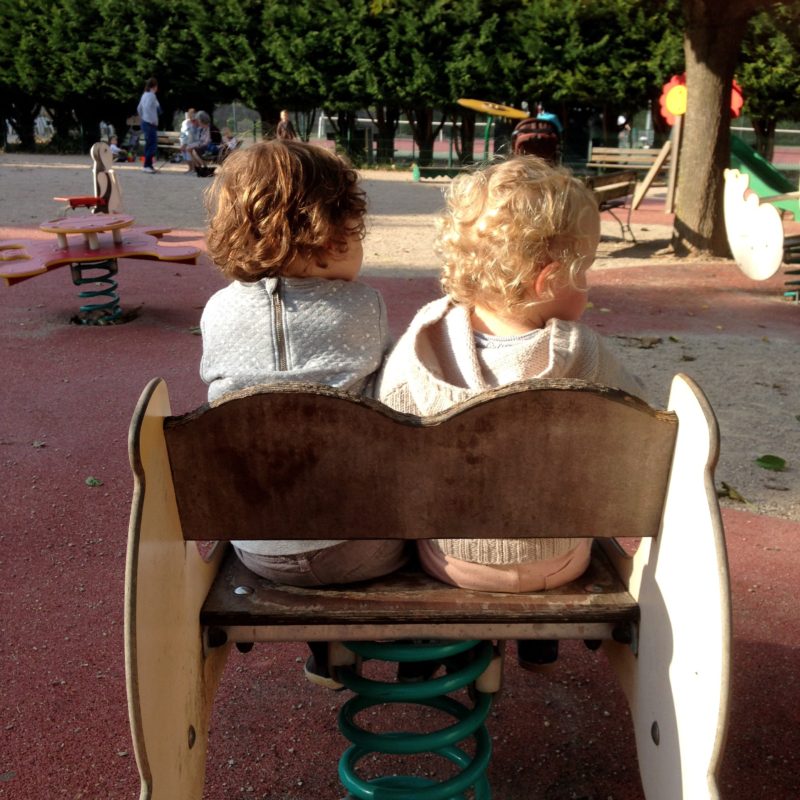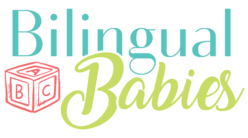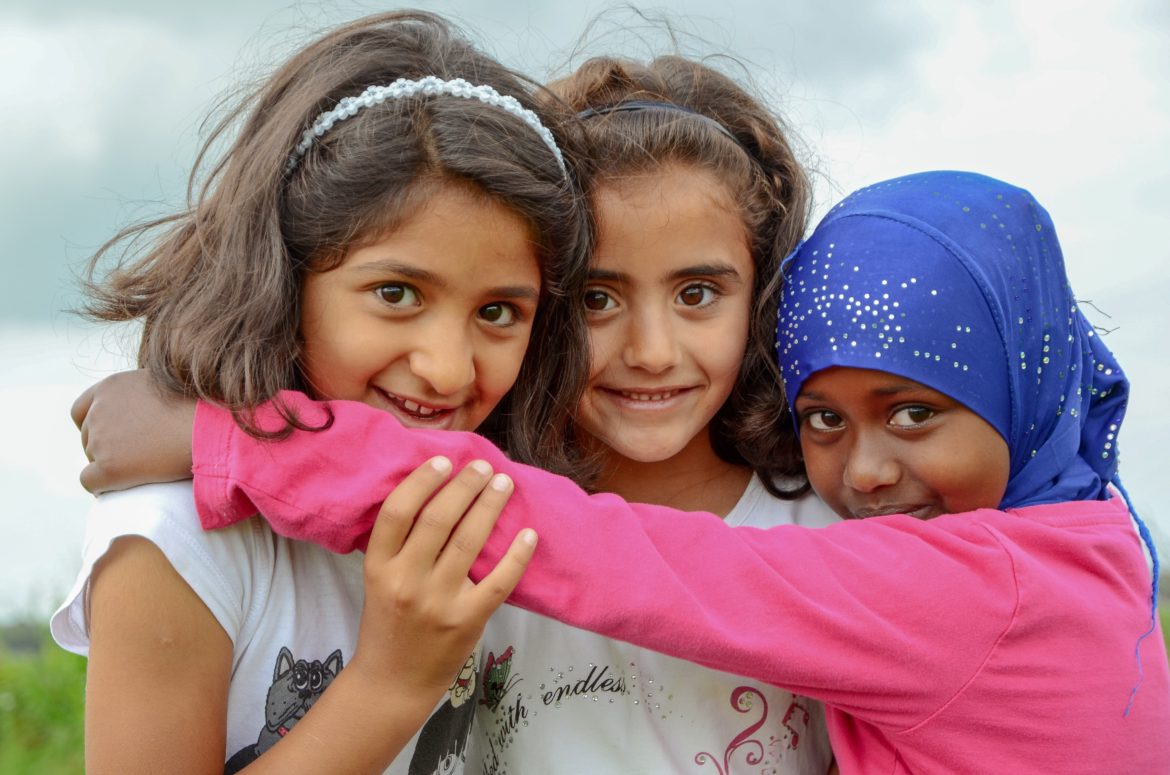It is fairly easy to keep children interested in the language mommy or daddy speak as long as they are little. But there will most certainly come a time when we as parents are not the main reference point any more. A time when we become “uncool” or boring to hang out with. While that is probably a very natural way of development, it is tricky if we as parents are the ones who provide most of the input and interaction in the minority language.
If you want to keep the minority language a vital part of your child’s life in later years, it is important that your child has friends who speak the minority language as well. Those can be friends who attend the same language school, friends who also travel to see grandparents in Germany, Puerto Rico, or China, or friends whom your child meets outside of school for playdates. In short, friends who are on a similar bilingual journey as your child and share that language-culture connection.
You can help your child make these connections and find friends early on if you create contexts in which they meet and hang out with other heritage speakers. The following are just some examples of how can find groups or activities with other speakers of the minority language:
Language schools
A colleague of mine who is raising her daughter with Korean and English told me that their daughter goes to Korean school on Saturday mornings. At first, when the daughter was about 6, she really liked it. But after a while, getting up early on Saturday mornings was not so ‘cool’ anymore and eventually she decided that she did not want to attend anymore. So she quit Korean school. However, that only lasted one semester. Then she went back. What happened? Well, during that semester, when she was not attending, her friends from Korean school kept asking her when she would come back. That “peer pressure” eventually swayed her and she went back to attending every Saturday to hang out with her friends. Now, she still grumbles at times about getting up early on a Saturday but she does it because Korean school is also about friends, not just about language learning.
We have been trying something similar. Ella is attending the German Language School of Morris County on Saturdays. We have been attending a “Mommy & Me” Music/Language classes since Ella was three months old (now she is 3). Sometimes we also meet other kids and their parents for playdates outside of class. Our hope: get her exposed early and maybe she find little buddies who also grow up with German and English. To what extent, we will be successful, only time will tell. But I’ll keep you posted. 🙂
Bilingual education programs
There are regular schools that offer bilingual education programs such as the German International School New York. If your child attends such a bilingual school, their entire life revolves around the two languages. They will have friends who are in the same boat. So being bilingual will be just as normal for your child as it will be for her friends from school.
Playgroups in the minority language
If it’s fun to speak the minority language, kids will do it more. A way to find playgroups in the minority language (at least here in the United States) is meetup.com. Look for a Meetup group in your area or start one if there is nothing in your language. Maybe there are other parents out there who have been waiting for such an opportunity.
Another way could be to join a mom’s club or neighborhood facebook group and inquire if there are other parents out there who are looking for speakers of Spanish, French, German, Chinese etc. so their children will get more exposure to the minority language.
If internet is not an option, you can also post something on the bulletin board of the local library.

Minority language speakers in your area
Maybe there are neighbors and/or other children in the area who speak the minority/heritage language. I know it takes a bit of courage at times, but approaching a neighbor or another mom on the playground directly can potentially establish new relationships, open up opportunities, or even result in new friendships with the benefit that they help your child’s minority language.
Main takeaway: Although we cannot find friends for our children, we can create opportunities for them to connect with peers who also speak the minority language. If they have friends who also speak the minority language, they may be more motivated to learn and speak that language because it is not so much about the language anymore. It becomes a matter of hanging out and doing stuff with friends … and that makes language learning at least twice as cool.

